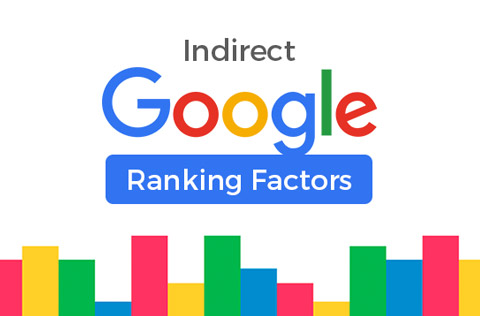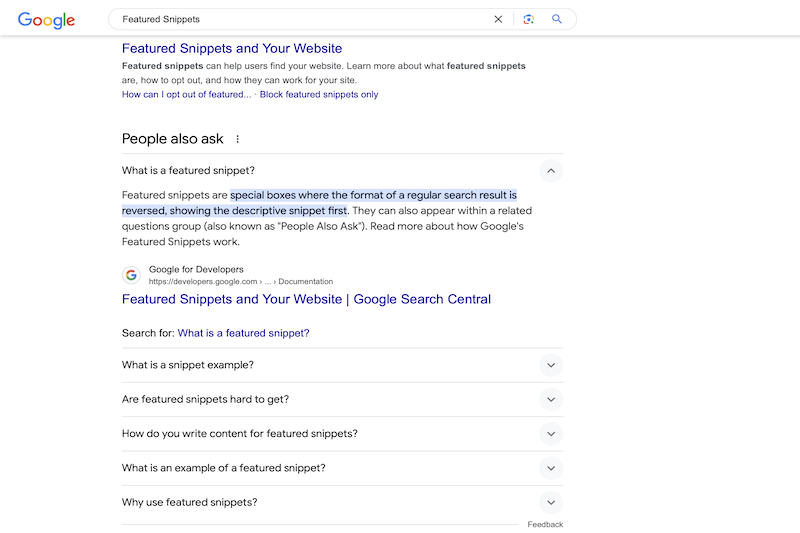Introduction Google Ranking Factors You Should Know About
Ranking high on the first page of search results used to be much easier. Back in the day when the Internet was new, all it took was a few articles with keywords stuffed all over, and you were good.
But, search engines got much smarter, and the Internet more saturated. Ranking high is still achievable, but you have to get a lot of things right, and that’s why there are SEO experts out there in Singapore to help you out.
Where your site ranks depends on a variety of different criteria, and if you want to be successful and rank high, you need to familiarize yourself with Google Ranking Factors. This article is all about that, and we will try to help you out, listing the most important ones. Stay tuned!
What Are Ranking Factors?
With billions of pages out there, sorting them is not easy. That’s why it takes months for a site to fully rank. It is an automatic process, based on Google (and other search engines) algorithms.
Each page on the web goes through the same process, and it all starts with Google bots crawling the site, thoroughly analyzing it. When they get the needed information, the algorithm compares it to the established factors, and with all other pages (that try to rank for the same search query), ranking them in proper order.
Keep in mind that this isn’t permanent. New websites are added all the time, and the existing ones change content. But, Google Ranking Factors also change from time to time. All this is a reason why it is easier to rank high than to keep the position.
The trouble with ranking factors is that only Google employees know for sure what they exactly are. Some factors are open, and the company told the world what matters. They usually get public whenever a Google Algorithm Update comes out.
Others aren’t, and SEO service Singapore try to figure them out. That doesn’t mean these factors are unimportant, on the contrary, these are the ones that usually give you the edge over the competition. It just means these are harder to figure out, and to apply, and often belong to the “gray” area, drawing you closer to a Google Penalty if you are not careful.
Most Important Google Ranking Factors
In this section, we will talk about the most important ranking factors. Remember, Google has 200+ factors from backlinko, and it’s almost impossible to optimize for all. That’s why you should get things done right, optimizing for factors that matter the most.
Mobile-Optimization
This is a 2019 guide, and it has to start with mobile devices. If your site isn’t optimized for the mobile and tablet screen size, you lose, period.
Web browsing from smaller screens overtook PC, and more people consume Internet information on the go than from their desktop and laptop computers. If your site doesn’t look at its best from a mobile device, people won’t enjoy it, and you will lose visitors. Instead, they will find another site (read: your competitors) that is optimized for mobile devices and gives them the same service or information.
Mobile-first indexing is a known factor, and Google announced that it prioritizes mobile-friendly websites, putting them higher in the search results. The announcement changed everything, and now website developers focus more on mobile screens than on PC. You should too.
One of the most prominent mobile factors is geolocation—Google will display matches that are in your proximity higher in the search results. That’s why you should take care of the Geolocation, particularly if you have a physical business such as cafes or restaurants.
Page Speed Optimization
Website speed is a well-known ranking factor, and Google will display faster websites higher on the results list. However, page speed also directly influences the user experience. If it takes 30 seconds for every page on your website to load, visitors will lose patience, and you will lose them. Even if they stay and read one article on your blog, they will hardly wait for the next one to load, increasing the bounce rates.
Page speed goes hand in hand with mobile optimization, primarily because mobile networks tend to be slower than cable/DSL. Make sure that your site is light and well-optimized, able to load almost instantaneously, especially on mobile devices. Doing that will boost your ranking, no doubt about it.
Quality Content
The old cliche “Content is King!” is still true. People browse the web searching for content, and all the rest just makes it easy and more pleasant for them to enjoy it.
No matter how good your blog looks, and how fast it works, if your content is purposeless, you won’t attract users. Sure, putting up low-quality articles that are optimized with good keywords might trick the bots. But the second the user actually clicks will be the last second they ever spend on your site if you tricked them. Google will find out, sooner rather than later, and you will risk a penalty.
The problem with content is that it is hard to rank for it. To beat the competition, you need to post better content. That’s all but easy.
First, you need to stay fresh, not just recycling the same-old information on ancient topics. That doesn’t mean you should avoid all popular topics—you are reading one now—it just means you have to go an extra mile when talking about them.
Your articles should contain more information than competition. Yes, that usually means longer content, but don’t just fill up your posts with random fluff, trying to reach 2500+ words goal.
Think about your users when creating content, whether or not you bring value to them. People want quality information that can help them, so be generous. But, don’t become a robot, your content should also be fun and easy to understand, even if you are explaining something highly technical. Users should never feel tired after reading your post.
Lastly—just be yourself. The value comes from your unique point of view, so speak from your own experience. That will grow brand trust, making the content more “human”.
User Interaction
Encouraging user activity such as comments, social shares, and similar interactions might help your rankings.
You can do this by ending your articles with questions which users can answer in comments, or adding calls-to-action. This will make users want to come back to the page which won’t go unnoticed by Google. All this also contributes to the quality of the content, making it more engaging and likable.
But don’t force interactions, just make it easy for people to share and comment, by adding visible social media buttons, and giving them options to subscribe to comment replies. And make sure you always answer the comments!
Domain Factors
Domain factors are important, but the issue is that you should take them into consideration only when choosing your domain.
Changing your domain name later is something you should rarely do—think about it like changing your personal name, it’s not something it should be taken lightly.
When the Internet was young, all you needed was an Exact Match Domain, and you would rank high. But, after a Google EMD update from 2012, you need more effort than just picking your main keyword for your site’s name. EMD is still a factor, but not a crucial one.
The same goes for having a targeted keyword in the domain name—it used to be the best thing ever, but now it just contributes a little bit.
When it comes to domain age, yes, it does matter, Google confirmed it. That’s one of the reasons why you should almost never change your domain name. However, this is only important when you are looking to buy a domain. Once you have it, you can’t do too much about it.
Country TLD extensions matter if you only want to rank locally. However, this is a minor factor, and you can rank high with a .com just as easily. Also, you never know if (or when) your business will go international, and it would be wise to have a .com from the get-go.
Website Security
Google will rank secure connections higher in the search results, and they openly admitted this. That’s why it is crucial to have an HTTPS website.
Also, having a “secure” icon next to your URL increases user trust, which is particularly important if you have an online store or any form that requests user information. Nobody will enter credit card numbers or personal information into websites with “your connection is not private” warnings. Get an SSL, they are much cheaper than they used to be.
Backlinks
Links from other websites are one of the most important ranking factors. Backlinks show Google that your content is valuable and if other sites from the same niche link to it, it also shows high relevance.
While backlinks are often misused via Black Hat techniques such as PBNs, you can take some steps to earn them. Remember, the number of backlinks matters (if they come from multiple domains), but links from authoritative websites matter the most. So quality + quantity is the best approach.
If you feel like your content has the needed quality to contribute to a wider community than yours, don’t hesitate to contact other site or blog owners in the same industry, letting them know you exist. Ask them to mention your article in one of their posts. If it is relevant and adds real value, they are likely to accept. That will not only gain Google trust but also expand your audience, borrowing it from the site that is linking back to you. Remember to return the favor!
One factor that increases the number of backlinks you get is the quality of the content you post, but especially its length. The longer the content is, the greater the chance of someone finding it useful, and linking back to your site. But again, don’t just write length for the sake of hitting the word count—offer value with each sentence.
Getting The Technical Part Right
When it comes to high-tech stuff, so many things are a ranking factor. Good code will impact site speed, cutting load times and making the UX better. But, technical aspects of SEO also help.
Putting up keywords into the title will benefit your page as it is the first thing Google pays attention to. You should also add a meta description to the page, and take care of the title tags (especially for regular, non-article pages)
Also, proper H1, H2, H3 header/subheader tags will help the search engine properly index the page. Adding headers to the article boost the user experience too, making it easier to read. And put keywords into image alt tags; it will help rank your site in “Google Images”.
If your site is on WordPress, plugins like Yoast SEO will make the whole technical SEO process much easier, and we recommend you to install it if you don’t use it already.
Also, registering your site using Google Search Console (Webmasters tools) will boost the ranking, helping Google find and index it faster. Yoast will help you do that too.
Conclusion
Those were the most important Google Ranking Factors. Some things like adding title tags and meta descriptions are simple to do. Others, like producing quality content take a lot of time but will return a huge rank boost. On the other side of the spectrum are factors like the domain name, which you can’t do much about.
Still, knowing what makes Google rank sites high is always useful, as it will help you improve your site, and make better decisions. No rank is set in stone, and no matter where your site currently is, reaching the first page is not impossible. You just need to know the right steps and learning the ranking factors is the first one.
Putting the theory into practice is not easy, but it is definitely doable. If you ever get stuck, don’t hesitate to hire the pros. And if you feel like we missed other important ranking factors, tell us in the comments section below.








